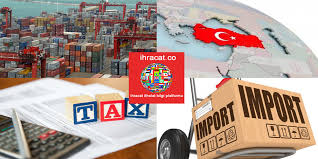Turkey is pressing ahead with a tripartite agreement with Georgia and Azerbaijan, aiming to speed freight rail traffic along a Middle Corridor trade route connecting China and Europe via the Caspian Sea.
Turkish President Recep Tayyip Erdogan signed a memorandum of understanding on April 7 that aims to simplify customs procedures along the Baku-Tbilisi-Kars railway, one of the rail routes that carry goods from Azerbaijani ports on the Caspian to markets in Europe. Erdogan did not release a statement about the signing, but speaking at the railroad’s opening ceremony in 2017, he said the route can promote “political peace, security and stability, and social prosperity.”
Turkey is seeking to solidify its role as a mainstay in the Middle Corridor web of trade routes. An alternate route traverses the Black Sea between Georgia and Romania, but it is unappealing at the moment due to the war in Ukraine. Georgia, for its part, is betting on a big increase in demand over both routes, signing onto initiatives like the Baku-Tbilisi-Kars customs agreement, while also building a deepwater port.
The goal for Erdogan is to maintain Turkey’s historic role as a nexus of East-West trade. Last year, Erdogan felt he was snubbed by the Western leaders after a handful of countries signed plans for a trade corridor bypassing Turkey at the G20 meeting in September. Speaking to reporters after the summit on September 11, he insisted East-West trade needs Turkey to thrive. “Türkiye is an important production and trade base,” he said. “The most convenient line for east-to-west traffic has to pass through Türkiye.”
The MoU that Erdogan signed includes specifications to coordinate customs inspection across the three countries, implementation of which will be overseen by a new commission. If all goes according to plan, this streamlining will help Turkey, Georgia, and Azerbaijan reap the benefits of an expected tripling in Middle Corridor trade volume by 2030.
eurasianet.org
